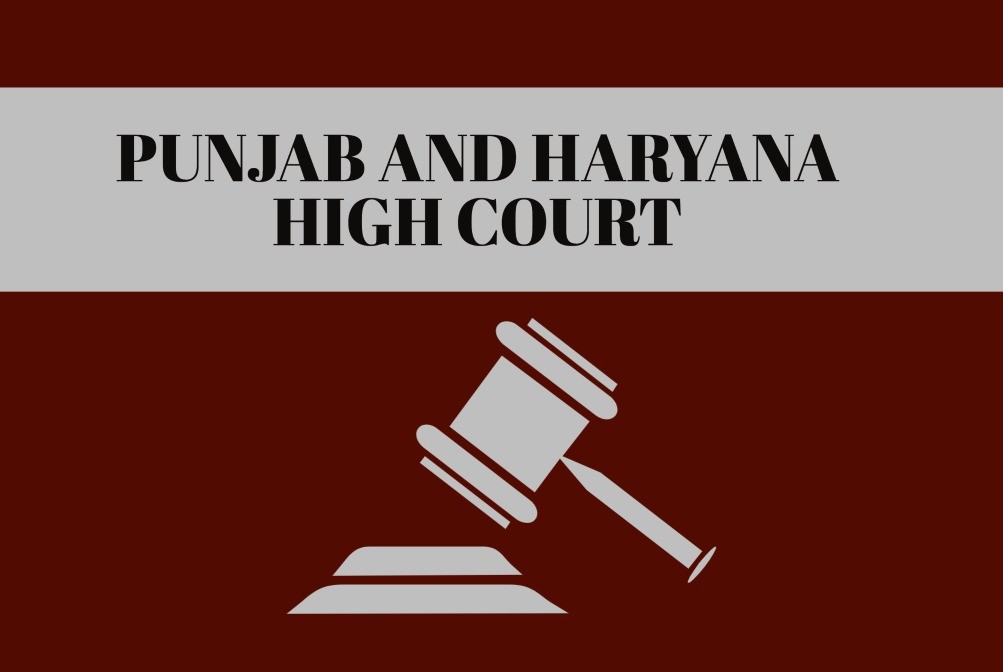Executing Court can issue notice to judgment debtor under Order 21 Rule 22 of CPC, holds Punjab & Haryana HC

Read Order: Anil Kumar and Another v. Sunil Soni
Monika Rahar
Chandigarh, March 28, 2022: While dealing with a civil revision petition filed against the order of the Executing Court issuing summons to the judgement-debtor, the Punjab and Haryana High Court has observed that the provisions of Order 21 Rule 22 of Code of Civil Procedure nowhere creates a complete bar to the issuance of a notice to the judgment debtor.
While upholding the decision of the Executing Court, Justice Alka Sarin opined, “… the reasoning given by the Executing Court that once notice was issued to the judgment debtor the proceedings could not be dropped merely at the asking of the decree-holder and if the decree-holder had any objections to the issuance of the notice the same should have been taken at the first instance and not when the notice was already issued, cannot be faulted with.”
Initially, in this case, the decree-holder filed an application for execution of the decree in the executing Court. The Executing Court issued a notice to the judgment debtor in the presence of the counsel for decree-holder. Thereafter, the decree-holder failed to file the registered A.D cover as directed by the Court. The counsel for the decree-holder pressed for an ex-parte decree against the judgment debtor. The Executing Court declined the prayer made by the decree-holder and issued notice to the judgment debtor.
Thus, the High Court was approached by the decree-holder, with a civil revision petition under Article 227 of the Constitution of India challenging this order issuing Notice to the judgment-debtor.
The counsel for the petitioners contended that the order of eviction was passed on September 14, 2021, and hence no notice was required to be issued to the judgment debtor in view of the provisions of Order 21 Rule 22 CPC. In support of his argument, the counsel relied upon judgments passed by the Punjab and Haryana High Court in Sh. Suresh Garodia Vs. Mr. Niyaz Ahmed Khan & Anr., 2020(3) RCR (Civil) 583, and Parminder Singh Sandhu Vs. Maninder Singh in CR-1604 of 2015.
The Court observed at the outset that the Notice in question was issued in the execution application to the judgment debtor in the presence of the counsel for decree-holder who at that point of time never objected to the issuance of summons to the judgment debtor in the first place. Thereafter, the Court observed that the decree-holder failed to file the registered A.D cover as directed by the Court since the alternate address of the judgment debtor was Rajasthan and, subsequently, the counsel for the decree-holder pressed for an ex-parte decision against the judgment-debtor, which was declined by the Executing Court.
Further, the Court opined that the reasoning given by the Executing Court that once notice was issued to the judgment debtor the proceedings could not be dropped merely at the asking of the decree-holder and if the decree-holder had any objections to the issuance of the notice the same should have been taken at the first instance and not when the notice was already issued, cannot be faulted with.
While referring to the provisions of Order 21 Rule 22 CPC, the Court observed that nowhere this provision creates a complete bar to the issuance of a notice to the judgment debtor. In the present case, the Court noted that the Executing Court opted to issue notice to the judgment debtor.
“Once the process has been initiated, the Executing Court was well within the law to order the continuation of the process and order the issuance of notice to be served upon the judgment debtor”, held the Court.
Thus, finding no illegality or infirmity in the order passed by the Executing Court, the Court dismissed the present revision petition.
Sign up for our weekly newsletter to stay up to date on our product, events featured blog, special offer and all of the exciting things that take place here at Legitquest.




Add a Comment